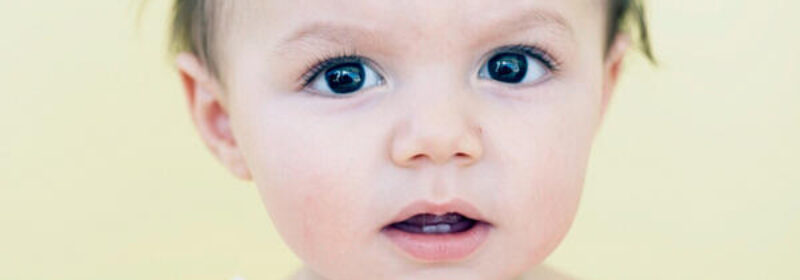
|

|

|

|

6 Tips to Avoid Tooth Decay in Toddlers
Tooth decay is a condition where the outer layer of the tooth which is a hard-white substance called enamel develops white spots and holes in it, exposing the inner tooth, making it vulnerable and very painful. If not prevented on time, it is possible for all children to develop tooth decay.
There are bacteria in the mouth at any given time of the day. These bacteria thrive on sugar and while at work, they create a thin film called plaque on the teeth. While breaking down sugar, the bacteria produce acid. Along with plaque, this acid corrodes the outer layer of the teeth exposing inner tooth material, which will develop holes or caries in the tooth. The dental caries in children will appear as a dark spot on the teeth. If not arrested early, these spots will develop into tooth decay and toddlers may require lengthy dental treatment.
Human beings develop two sets of teeth during its lifetime. The first set of teeth consisting of 20 teeth in all is called deciduous or temporary teeth which starts erupting when baby is between 4 to 8 months. Baby teeth, as they are called sometimes are important because they not only help in chewing foods, when baby starts semisolid and solid foods, but also help in talking when baby starts to form words and sentences and then talk.
It is of vital importance therefore, to take proper care of baby’s teeth as early as possible to avoid complications in later childhood.
How can we avoid tooth decay in toddlers?
There are a few areas where children need attention from the beginning of their lives, to avoid tooth decay.
Food and nutrition
Be very careful about baby’s food and nutrition. The common problem around 1year old babies is called baby bottle decay. This refers to decay that happens because of the habit of letting the baby sleep with the milk bottle or juice bottle in his mouth. As the baby goes to sleep, the milk puddles in the mouth and bacteria can work on the lactose or sucrose in the milk/juice throughout night producing plaque and acid. Remove baby from the breast or bottle as soon as he stops sucking.
Start a sucking cup, or Sippy as soon as baby is ready to drink from a cup.
Another major cause of tooth decay in toddlers is having too many sugary drinks, during meals and between two meals.
Giving too many sweet snacks, chocolates and fruit rolls to chew on during the day also leaves sugar in the mouth throughout the day which allows bacteria to thrive and produce caries in teeth.
When the baby starts semi solid foods and solid foods after 4 to 6 months of age, start with mashed fruits, vegetables, meats and so on. Avoid adding sugar to all these foods. Give them in their natural flavours, without adding sugar or vanilla. Let them develop taste for all foods, rather than making everything sweet.
It is very important to avoid excess sugar from baby’s diet and let the children start on good healthy diet early on in life.
Use only water for the night in baby’s bottle instead of milk or juice.
Visit the dentist regularly
It is advisable to start visiting the dentist as early as possible to make the visit to the dentist a pleasant experience, rather than making the first call to the dentist’s office when there is trouble in the teeth. Take your baby to the visit the dentist as a social meeting, to let him get familiar with the dentist’s chair, and the various equipment so that he will not be surprised/shocked/afraid when he really has an appointment for check-ups.
Make it a habit to visit the dentist every six months. When decay is spotted early, it can be prevented from further development. Also, the dentist may advise if there is a need to pay attention to any detail while teeth are erupting.
Talk to your dentist about fluoride supplements if your area does not get fluoridated water supply.
Establish a good dental health routine
As the saying goes, we are slaves of our habits. If you start your baby on healthy oral routine, you will have healthy toddlers and healthy children. Leading to healthy adulthood as far as dental health is concerned.
It is a good habit to wipe your baby’s mouth with a soft hand towel before putting baby to sleep. It will clean the mouth of sugars and bacteria.
As soon as the first tooth erupts, make it a point to brush your baby’s tooth with a soft toothbrush with a tiny amount of baby toothpaste. This will form a habit of brushing teeth regularly in later life. Continue to supervise the toddler and the child while brushing teeth.
When the toddler develops two or more teeth, floss his teeth. Remove any food particle that is stuck between teeth. This too is an exercise to form good dental hygiene routine.
As the baby grows older, he should be helped to brush his teeth twice a day, before going to bed and in morning after waking up. Brush his teeth, gums and tongue with a mild children’s toothpaste. Do not take a big amount of paste on the brush. A tiny bit, equal to a grain of rice is enough for the toddler.
Recognise early signs of tooth decay
Each individual baby is different. Even after taking care and following guidelines, you may find signs that may lead to tooth decay. It is very important to check your baby’s mouth from time to time to see if his mouth and teeth are okay and there is no sign of while or brown spots on his teeth. If you find anything which is not normal, ask your doctor and take an appointment with your dentist. Early detection can prevent and reverse the tooth decay.
Medications
It is important to know about what medication you are taking while breast feeding. Certain groups of medicines have an effect on teeth formation. When the baby is going through any treatment for an ailment, tell your dentist about it and show him the list of medicines the child is having.
Present a good role model
Children learn from copying adults around them. Present a good role model for the child to follow. You should follow a good dental care and hygiene routine yourself for the child to imitate. You need to eat a good healthy diet yourself. Regular visits to dentist yourself will set a good example for the child.






